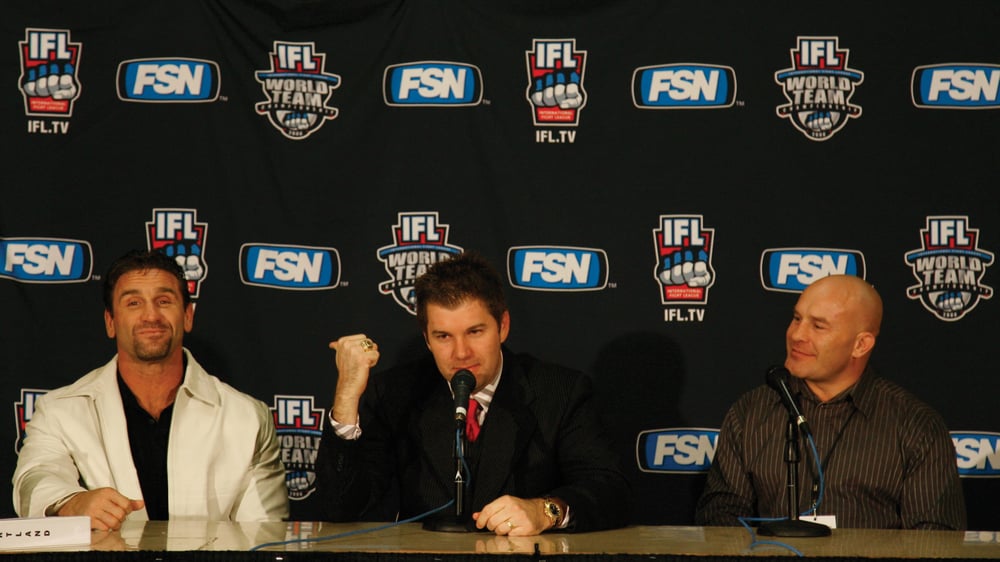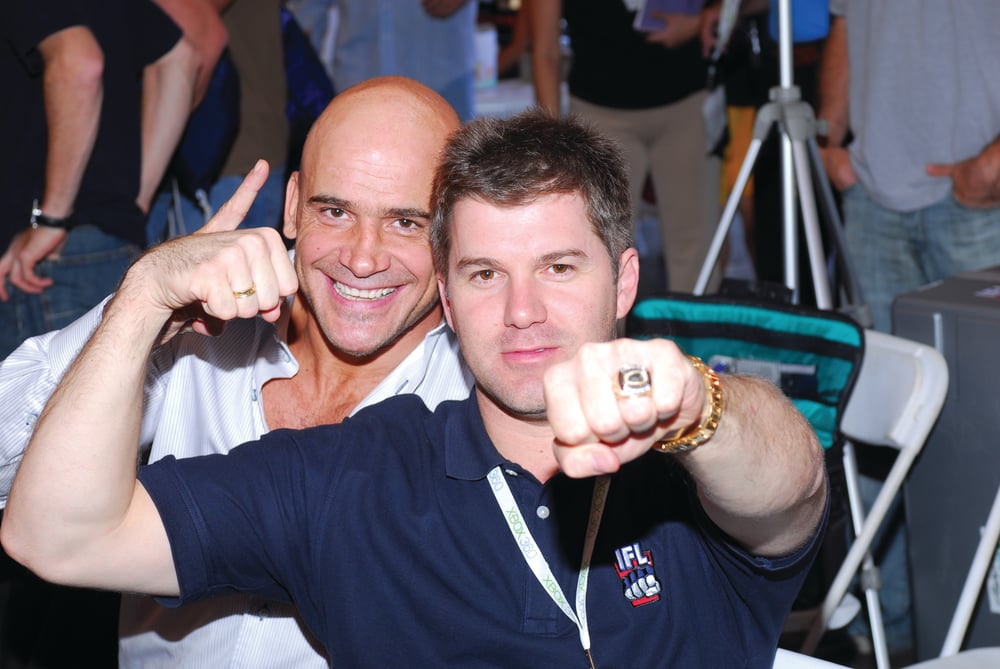
Issue 022
February 2007
How many times have you heard a friend or colleague say to you, ‘I have a great idea, what do you think about this?’ How many times have these ideas actually grown into the biggest thing in mixed martial arts? A strange question indeed, and probably the answer would be “not many”, unless of course your name is Gareb Shamus and the friend in question is none other than Kurt Otto, founder of the only mixed martial arts league in the world; the IFL.
Many times great visions resonate from the passion built from a basic concept. One innovative concept, that of the IFL, is a direct result of the vision Kurt Otto took from his biggest passion, mixed martial arts (MMA), and his desire to see the sport and its athletes more accepted and recognised for their work.
Otto is a highly successful property entrepreneur who specializes in the architectural design and construction of luxury multi million dollar homes. He was first introduced to his partner Shamus as a result of what can only be described as fate. His property company was contracted to perform the renovation of a luxury home for a lady client, who throughout every stage of the development was the sole point of contact.
This lady turned out to be Gareb’s wife, a fact that was found out a little while later when the two met as a result of a mutual acquaintance that was part of a small yet close circle of friends. The friendship between the two grew over time, as did the knowledge of each other’s background, and as a result Kurt approached Gareb (founder and chairman of Wizard Entertainment Group) with his concept and asked if he wanted to get involved. As with any new business venture market research is key, so Kurt introduced Gareb to MMA by way of a visit to a UFC event. From here Shamus was hooked, and a partnership was formed.
Kurt has a strong background in martial arts and had dreamed up a concept in which sports legends and athletes worked together in a team format that highlighted the strength and athleticism of like never before. He came up with the concept in 2004 after watching the documentary The Smashing Machine, a film about the life of ultimate fighter Mark Kerr. “After watching this documentary, I realized that the industry treats fighters as pieces of meat, not athletes.” This is something that Kurt is passionate about overcoming – all his strategies with regards to running a league are, it seems, to create a greater sense of team spirit, in effect developing a big family where members receive healthcare, benefits and even stock options in the business they are developing together.
The decision to offer the aforementioned is inspired, as not only does it give a clear sign of responsibility and care to everyone involved, it also develops a sense of loyalty on both sides, something Kurt is all to keen to uphold due to the recent chopping and changing of fighters contracts between other organisations which are, in his opinion, a clear result of the influx of money into the sport.

As a promotional event, Kurt’s ambition and concept for the IFL was to initially create a professional league where fighters could gain superstar status not just as individuals but as part of a team. This concept was not aimed to take the spotlight off individuals, but to allow people’s ability to shine as merits of the team as a whole. It would also protect the fighter’s profile should tragedy strike. Examples of this philosophy was stated by Kurt as follows; “If you saw Michael Johnson playing basketball in a park on his own, you would clearly see his skill and talent, so much so that you would probably state ‘that guy should be part of a team’. In the same vein if someone like Lawrence Taylor (American Football superstar) was an individual athlete such as a tennis player, should he have received an injury and have never able to compete again the ‘LT’ franchise would be out of business. The benefit of the league will protect our fighters who will be able to live on if injured through their team.”
Another benefit to the fighters acting as part of the team would be their ability to perform at a higher level by not being restricted by the intense pressure that is placed upon individual champions to perform. Entertainment is another major factor that ranks highly on Kurt’s agenda, running hand in hand with safety and professionalism. Rules applicable to the IFL see the removal of elbow blows. Kurt views these techniques as not only dangerous but sees their removal as a way of eradicating a tactic that in his opinion gives no benefit to the fans or the safety of the fighters. “No one wants to see a fight stopped due to a cut to the head. It is really not what the fans want to see.” By removing elbows and also implementing another IFL precedent by reducing the length of time of the rounds by one minute, Kurt believes that a greater level of energy and vigour can be shown by the fighters for the full duration of the bout.
Otto’s vision for the IFL allowed him to fulfil another dream by working with some of the greatest stars ever to fight. He began building support for his dream by meeting Japanese wrestling champion Antonio Inoki, explaining the concept to the legend, and then recruiting and educating some of the sport’s greatest stars. Bas Rutten and Pat Miletich were among the first to be approached by Kurt, who was a long-time fan of both fighters. “All the legends were apprehensive at first but when the offers were made they were fully behind the idea.” The IFL has allowed these former kings of the sport to gain a new lease of life by being actively involved in the business and in the league at the highest level as coaches and heads of their respective teams. “I wanted the whole concept to walk, talk, feel and smell like a league. The status of the coaches, the sponsors and the partners has created something very special.”
Kurt Otto’s goal for the IFL is to create as much exposure for the league and the sport as a whole. He intends to do this by giving access to the IFL to as many people as possible. The events will be aired on TV for free something he feels is essential with pay per view IFL events only happening when there is a specific benefit to be had and only for the benefit of the league as a whole. “We want IFL to be to mixed martial arts what the NFL is to football, driving forward and onwards to fulfil its destiny as the sport of the future. We intend to interact with schools, colleges and even the police departments in order to become a truly professional league.” Kurt’s milestone to achieve his desired status is merely three yrs away and who can doubt him. 2008 will see 18 teams from around the world competing against each other in an attempt to reach a final and ultimately win the Championship, with each event being aired by the Fox Sports Network. The programming of each year’s events are planned in advance prior to the start of the season, allowing the greatest amount of exposure to be created by the league’s marketing department in conjunction with league sponsors, among which companies such as Microsoft are key.
With two offices employing 30 people working full time, who can doubt Kurt Otto’s goal? “Gareb and I are fully committed to this cause, and by employing only the highest quality of people in any position, from coach to cleaner, together we will make things happen.”
...










